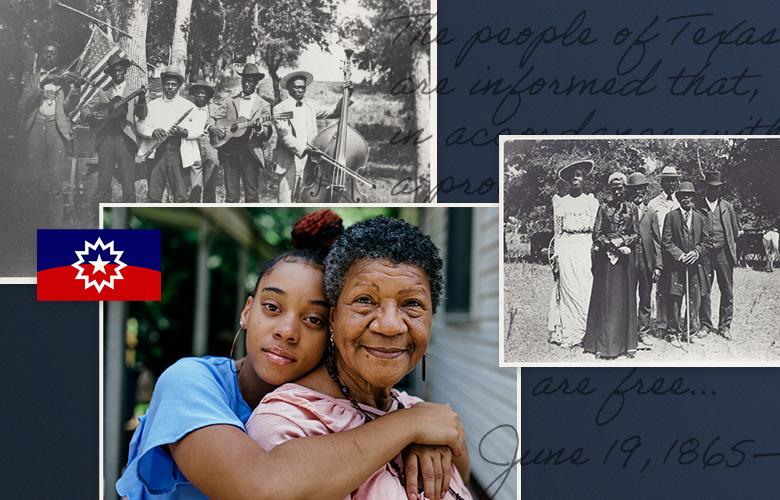
Amid the continued struggles felt by African Americans dating back to the earliest arrivals in the early 1500s, the determination and resilience of African Americans has allowed and continues to allow for gains and triumphs. On June 17, 2021, President Joseph Biden signed the Juneteenth National Independence Day Act, making Juneteenth a national holiday—thereby acknowledging June 19, 1865, as the definitive end to slavery in the United States.
Juneteenth, which is a combination of the words June and nineteenth, references June 19, 1865, when General Granger announced General Order No.3 proclaiming freedom for enslaved people in Texas. Why was this significant? The Emancipation Proclamation, which freed all enslaved African Americans, was issued by President Abraham Lincoln on January 1, 1863. Despite this proclamation, institutional slavery continued in the confederate state of Texas until the Union Army delivered this public notification two and a half years later.
What does this historical proclamation mean for African Americans today? Juneteenth may be considered the African American Independence Day, because the passage of the Declaration of Independence by the Continental Congress on July 4, 1776, which is celebrated as Independence Day, failed to provide any benefits or relief to African Americans. In fact, slavery received important protections in the Constitution by way of the three-fifths clause, “which counted three-fifths of a state’s slave population in apportioning representation [giving] the South extra representation in the House of Representatives and extra votes to the Electoral College to favor the southern states.”1
Hence, in 2021, 156 years after General Granger read these words, “The people of Texas are informed that, in accordance with a proclamation from the Executive of the United States, all slaves are free…”,2 the nation finally acknowledges the date on which all enslaved African Americans were freed. This acknowledgement marks a milestone in the endured struggle for African Americans to be nationally acknowledged and represented as a part of the American framework.
This year Juneteenth will be observed on Monday, June 20. How will you honor this new federal holiday?
| Katari Coleman co-leads the National Center on Afterschool and Summer Enrichment (NCASE), a resource and training hub that builds capacity to ensure children can access high-quality afterschool learning that supports their development and boosts their academic achievement. She is also a member of EDC’s Afrodiaspora employee resource group. |
1Mintz, S. (n.d.). Historical context: The constitution and slavery. The Gilder Lehrman Institute of American History. https://www.gilderlehrman.org/history-resources/teaching-resource/historical-context-constitution-and-slavery
2National Constitution Center. (2021, June 19). Juneteenth: Understanding its origins. Constitution Daily. https://constitutioncenter.org/blog/juneteenth-understanding-its-origins
Left photo: Stephenson, Mrs. Charles (Grace Murray). [Emancipation Day Celebration band, June 19, 1900], photograph, June 19, 1900; (https://texashistory.unt.edu/ark:/67531/metapth124054/: accessed June 16, 2022), University of North Texas Libraries, The Portal to Texas History, https://texashistory.unt.edu; crediting Austin History Center, Austin Public Library.
Center photo: Getty Images
Right photo: Stephenson, Mrs. Charles (Grace Murray). [Emancipation Day Celebration, June 19, 1900], photograph, June 19, 1900; (https://texashistory.unt.edu/ark:/67531/metapth124053/m1/1/: accessed June 16, 2022), University of North Texas Libraries, The Portal to Texas History, https://texashistory.unt.edu; crediting Austin History Center, Austin Public Library.

Comments
Add new comment